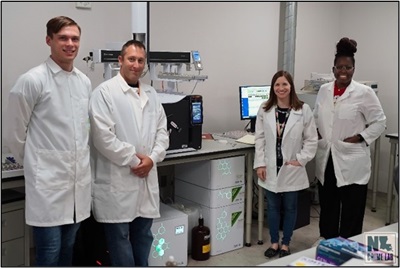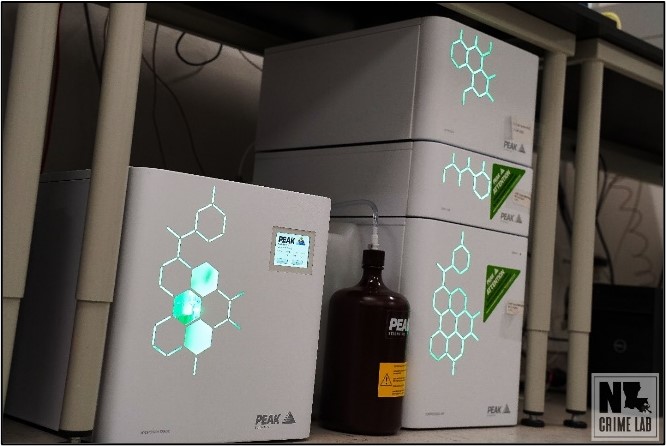
In 2021, there were 848 fatal crashes in Louisiana, 336 (39.6%) of which involved alcohol use on the part of one or both drivers. These crashes resulted in 369 fatalities, accounting for 39.5% of the 993 traffic fatalities during that year.
In Louisiana, blood is collected by law enforcement officers and sent to either the Louisiana State Police Crime Laboratory or the North Louisiana Criminalistics Laboratory (NLCL) for analysis, depending on the parish in which the arrest occurred. The Louisiana State Police crime lab analyzes samples from 35 of Louisiana’s 64 parishes, while the NLCL services the remaining 29 parishes.
Due to the limitations of its existing equipment, the NLCL could only report ethanol in the blood samples it receives from law enforcement investigating impaired driving cases. This means that blood submitted to the NLCL is testing for drugs in only six of the seven Drug Recognition Expert (DRE) categories. For the NLCL to expand its current testing capabilities for blood alcohol analysis to include inhalant drugs, additional equipment is needed.
Through a grant from GHSA and Responsibility.org, the Louisiana Highway Safety Commission used the funding to purchase equipment allowing the labs to test every impaired driving blood sample submitted for analysis for a wider array of drugs, including inhalants.

Lab Equipment Installation and Usage
Due to weather delays, the equipment was installed in February 2023, and the NLCL began testing for inhalants and other drugs in March 2023. The initial testing resulted in a 19% decrease in turnaround time between receipt of blood samples and reporting results to the submitting law enforcement agency.
From March to June 2023, over 170 evidentiary blood samples were tested as part of driving while intoxicated (DWI) case investigations and analyzed for drugs in all seven DRE categories. There was a 6.5% decrease in the turnaround time during this three-month testing period, resulting in faster reporting of results, which translated to more timely prosecution of DWI cases.
Ongoing Project Impact
Increasing the likelihood of conviction in drug-impaired DWI cases is the most significant result of this project. Having in-house generators provides self-sufficiency to the NLCL instead of relying on a third-party to deliver the test results. This equipment also allows the lab to test all seven DRE categories, increasing testing capacity and improving timely reporting for impaired driving cases.
